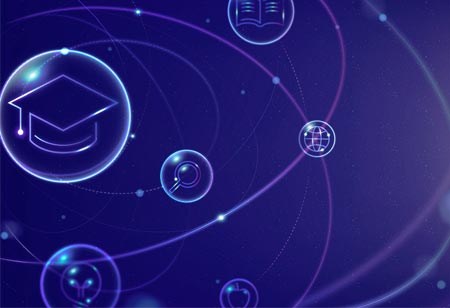THANK YOU FOR SUBSCRIBING
Be first to read the latest tech news, Industry Leader's Insights, and CIO interviews of medium and large enterprises exclusively from Education Technology Insights
Enhancing Learning through AI-driven Solutions
AI-driven platforms and tools solve challenges in learning.

By
Education Technology Insights | Thursday, November 10, 2022
Stay ahead of the industry with exclusive feature stories on the top companies, expert insights and the latest news delivered straight to your inbox. Subscribe today.
AI provides solutions to challenges in learning and education in the work-from-home era.
FREMONT, CA: AI-driven platforms and tools solve challenges in learning. Artificial intelligence (AI) enhances e-learning by providing solutions to how information is consumed and assimilated. E-learning facilitates knowledge acquisition by many groups, such as large numbers of learners or employees.
AI provides personalized solutions to challenges.
Bridging skill gaps: Executives recognize a skill gap in their employees. AI provides solutions to the challenges of upskilling and reskilling employees with relevant information. It matches the correct skill with the relevant job position through learning experience platforms (LXP). Employees get a better hold of candidates' skill levels through algorithms. Tools analyze skill sets to give users an understanding of areas requiring upskilling and the required courses.
Allocating the right candidate to the right job: Data entered in AI-based tools positions appropriate candidates with appropriate roles. AI utilizes data entered by analyzing profiles and competency. Organizations receive a list of candidates by their skill levels.
Improving learning outcomes: Learning processes are automated for learners to follow. Platforms guide the learner through assessments by providing prompts and detailed feedback. AI assesses skills and competencies during the learner's initial knowledge check. Personalized learning paths guide learners through the learning materials. Their feedback and progress are documented. The concepts a trainee is successful it will move to the mastered category. Concepts that trainees struggle with will be included again in the learning path for trainees to revisit.
Tracking learning: Platforms track concepts learned to measure the impact of learning. Assignments submitted, missed, and grades are aggregated to register individual progress. Trainers receive students' performances and activities to follow up with them through the Learning management systems (LMS).
Timely interventions: LMS generates a comprehensive report mapping performance of the students. The trainer has access to the student's activities and grades. An LMS provides personalized progress reports for each student. The system flags students that need more guidance. Trainers can look into potential issues early.
E-learning has progressed to automate and personalize learning through artificial intelligence. AI-based tools and platforms provide solutions to improve performance, keep track of learning, and record personalized learning pathways. AI integrates trainers with trainees to aid them in their instruction and provide interventions.







